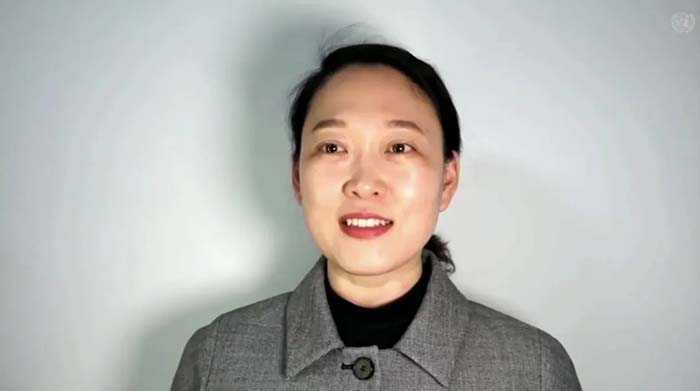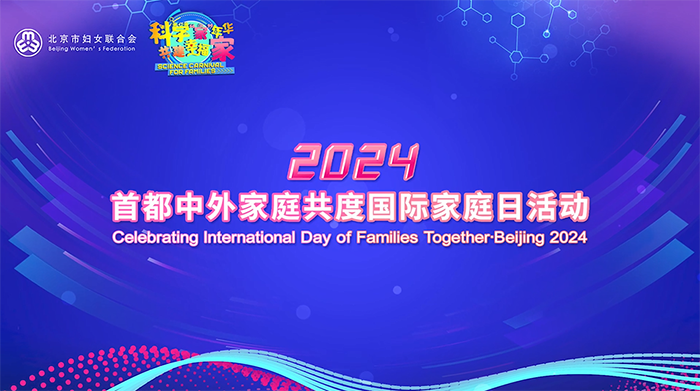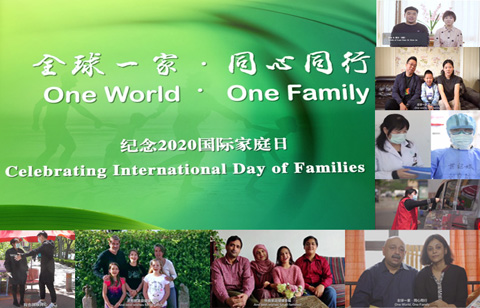NPC Standing Committee Deliberates Draft Law on Family Education
Date:2021-9-1 16:42:23 Views:The 30th meeting of the 13th National People's Congress (NPC) Standing Committee deliberated a draft law on the promotion of family education on August 18. Many participants affirmed the draft and put forward suggestions on the name of the law, content of family education, family education guidance and related legal responsibilities, hoping that the draft can help minors button the first button in their lifetime to and enhance family happiness and social harmony.
Shen Yueyue, Vice-Chairperson of the NPC Standing Committee, said that the second reading of the draft law further clarified the concept of family education. By revising the headlines of relevant chapters, the responsibilities of the family, country, and society in education were better highlighted. Other aspects such as leveraging social forces, strengthening responsibilities of parents or other guardians and improving connections with relevant laws have been enhanced. She was in favor of this.
Meanwhile, Shen proposed whether the name of the law should be revised because the name "family education promotion law" might not appropriately cover the full range of this law. She recommended continuing to use "family education law." She called for revising the concept and content of family education, highlighting the cultivation of minors' moral qualities, behavior habits, cultural accomplishments, and physical and mental health. According to her, parents or other guardians of minors should go to parenting school. Education and administrative departments and women's federations should coordinate to promote a family education guidance service system that covers both urban and rural areas. She also advised strengthening the connection between the family education law and the minors protection law.
Deng Kai, a member of the NPC Standing Committee, explained that during the drafting period, some lawmakers proposed calling it "family education promotion law," but most still agree with using the "family education law."
"We found in our research that it is common that many parents don't educate them in a proper way," Deng said, adding that this has become an important issue in family education that needs to be resolved. The original intention of making the law is to strengthen the main responsibility of family and let families assume the responsibility for educating minors. If the name is changed, the original intention will also be changed, and the main body will shift to the government and society.
"The name was the 'family education law' during the first reading of the draft law. The two names show different roles of the laws," said Deng Li, another member of the NPC Standing Committee. She explained that family education promotion law emphasizes the State and society's support, service and guarantee on family education, while family education law might highlight the main responsibility of parents and what and how to teach. It also includes support and services from the State and society. Deng Li said when drafting the law for the first reading in cooperation with the NPC social affair committee, the All-China Women's Federation hoped that through the promulgation of this law, parents and guardians would pay more attention to children's education, and hoped that the government and society would be able to better protect them by establishing a system that connects the family education law, the law on the protection of minors and the law on the prevention of juvenile delinquency.
A member of the NPC Standing Committee, Xia Weidong, said that equality between men and women is very important in family education. The problem has not been completely resolved. Families must educate their children on this issue from an early age. He suggested adding the basic content of family virtues — respecting the elderly and loving the young, equality between men and women, harmony between husband and wife, diligence and thrift, and uniting the neighborhood — to Article 1 of the General Provisions of Chapter 1, just after "Guiding the whole society to pay attention to families, family education, and family tradition".
Regarding the definition of family education, Pang Lijuan, a member of the NPC Standing Committee, suggested that the second half of Article 2 should be amended to "fostering, guidance and influence of moral quality, emotional attitudes, behavior habits, cultural accomplishments, knowledge skills and living habits." Pang added that family is the place where children's first button of life is buttoned, and to have correct attitudes, positive emotions and good behaviors is essential for him or her. Family plays a vital role in fostering children's moral character, emotional attitude, and behavioral habits.
Cai Fang, a member of the NPC Standing Committee, suggested that "physical health" should be added after "knowledge and skills" in Article 2 of the draft. "At present, some children lack work and exercise. To improve the condition, we should start with family education," he said.
Paragraph 2 of Article 6 of the draft states that "Local education department and women's federation should undertake the routine affairs of family education in accordance with the division of responsibilities determined by the people's government at or above the county level." Deng Li suggested removing "determined by the people's government at or above the county level." Unlike education departments, women's federations' work is generally not arranged by the county government. This part may cause mismatches across the country, making it difficult to coordinate work.
Deng Li said that in Chapter 3, in the State's support section, the specific responsibilities of education and health departments and women's federations in family education, which are important supporting forces, were not clarified. She suggested adding an article to this chapter regarding the functions of women's federations, that is, "Women's federations should popularize family education knowledge, organize and carry out publicity activities, and provide guidance services through multiple channels such as community parent schools."
Li Yuefeng, a member of the NPC Standing Committee, suggested perfecting relevant regulations on the State's support for left-behind children in rural areas, clarifying preferential support policies to guarantee their healthy growth. In addition, he said the government should clarify the functional departments in charge of family education work, further strengthen overall planning and promotion, and play a guiding role in boosting high-quality development of family education.
"Who is going to guide family education? Who is more responsible? I think it is not the education department, but the civil affairs department," said lawmaker Zheng Gongcheng. It will be more down-to-earth for the civil affairs department to guide family education based on its advantages in grassroots work and public welfare. Zheng hoped to strengthen the responsibilities of civil affairs departments and include family education in the scope of social services and child welfare. The draft is basically linked to the compulsory education law. According to Zheng, family education should be more closely linked to the law on the protection of minors and the law on the prevention of juvenile delinquency based on a national and social perspective. He advised to stop extending compulsory education to the family, but to rebuild a positive environment in which the family is responsible.
"The most important part and the core of family education is family tradition," lawmaker Guo Zhenhua said, hoping to emphasize family traditions in relevant provisions of the law. He proposed to change part of Article 15 to "to establish and inherit good family traditions."
Lawmaker Liu Xiuwen advised to refer to the provisions on applicable objects in the national family education guidelines and clarify that newlyweds, expectant parents and minors' parents or other guardians should be objects of family education guidance, support and services provided by the State, schools and society.
In addition, Liu suggested adding relevant regulations on methods for finding cases that require family education and guidance, such as regular visits and receiving reports. He suggested restoring relevant provisions of Articles 43, 44, 45, and 46 of the first draft, in conjunction with the revision of the minors' protection law, to ensure that parents will bear necessary legal liabilities if they fail to fulfill their family education duties according to law or even infringe upon the legal rights and interests of minors.
Article 32 of the second draft stipulates that citizens, legal persons and unincorporated organizations may establish non-profit family education service institutions in accordance with the law. Lawmaker Li Feiyue said that as the current situation of the family education service industry is mixed, it is necessary to make further detailed regulations on the procedures, conditions and supervision mechanisms for such institutions, as well as online family education guidance service institutions, according to law.
Lawmaker Uritu said that government should prevent off-campus training institutions from continuing currently prohibited extracurricular tutoring and training in the disguised form of "family education."



